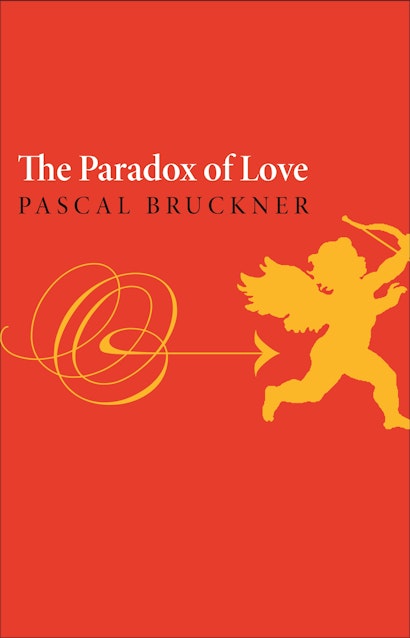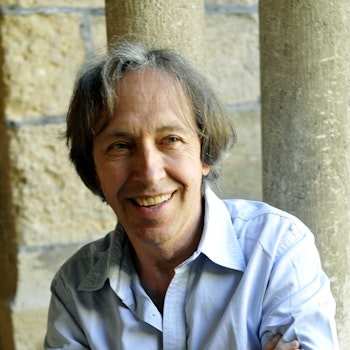The sexual revolution is justly celebrated for the freedoms it brought—birth control, the decriminalization of abortion, the liberalization of divorce, greater equality between the sexes, women’s massive entry into the workforce, and more tolerance of homosexuality. But as Pascal Bruckner, one of France’s leading writers, argues in this lively and provocative reflection on the contradictions of modern love, our new freedoms have also brought new burdens and rules—without, however, wiping out the old rules, emotions, desires, and arrangements: the couple, marriage, jealousy, the demand for fidelity, the war between constancy and inconstancy. It is no wonder that love, sex, and relationships today are so confusing, so difficult, and so paradoxical.
Drawing on history, politics, psychology, literature, pop culture, and current events, this book—a best seller in France—exposes and dissects these paradoxes. With his customary brilliance and wit, Bruckner traces the roots of sexual liberation back to the Enlightenment in order to explain love’s supreme paradox, epitomized by the 1960s oxymoron of “free love”: the tension between freedom, which separates, and love, which attaches. Ashamed that our sex lives fail to live up to such liberated ideals, we have traded neuroses of repression for neuroses of inadequacy, and we overcompensate: “Our parents lied about their morality,” Bruckner writes, but “we lie about our immorality.?
Mixing irony and optimism, Bruckner argues that, when it comes to love, we should side neither with the revolutionaries nor the reactionaries. Rather, taking love and ourselves as we are, we should realize that love makes no progress and that its messiness, surprises, and paradoxes are not merely the sources of its pain—but also of its pleasure and glory.
Pascal Bruckner is the award-winning author of many books of fiction and nonfiction, including the novel Bitter Moon, which was made into a film by Roman Polanski. Bruckner's nonfiction books include Perpetual Euphoria (Princeton) and The Tyranny of Guilt.
"The novelist and philosopher Pascal Bruckner's Paradox of Love is a brilliant account of the sexual muddles of our time."—Wall Street Journal
"Here to help clear things up is Pascal Bruckner, a French thinker who has mercifully never fallen for the post-structuralist poppycock that convoluted prose signifies complexity of thought. The Paradox of Love is in many ways a deconstructive take on our ideas of romance and desire and obsession, yet you will seek in vain in its succession of suave ���Բ�é��� for a sentence that does not immediately make sense. Derrida's obfuscation and Foucault's obscurantism can have you shouting at the walls. Spend a few minutes in Bruckner's company, though, and you want to read him out loud. Which means that the reviewer's temptation is to do nothing but quote. A few pages in, I realised I'd be better off underlining what I didn't want to commit to memory, lest the book become a web of scrawls and scribbles. 'The couple is a little principality that votes its own laws and is constantly in danger of falling into despotism or anarchy.' Whoa! And after a sentence like that you get another just like it: 'Lovers are simultaneously sovereigns, diplomats, parliament, and people, all by themselves.' In a book bursting apart with ideas, it feels almost fatuous to suggest that Bruckner has a thesis—but he has, and it is that the sexual revolution was no such thing. Far from liberating us, he argues, 'the accursed parenthesis of the 1960s' did no more than usher us into new jails—jails in which we are both prisoner and guard."—Christopher Bray, Financial Times
"Bruckner's book seeks to reverse the sentimental trend. His aim is to strip away the 'illusions and false expectations' connected with all matters of the heart. It has to be said—he does a pretty thorough demolition job, starting with religion. . . . Bruckner's vision of the future is chilling, though it is already coming about. He sees a world of solitary souls who form their relationships exclusively online, through 'social networking sites'."—Daily Mail
"At the start of his exhilarating new book, The Paradox of Love (av������), Bruckner recalls that the parents mostly hung out on the second floor of the building, smoking dope and enjoying sex, while downstairs the big kids tormented the little kids. . . . In France the bestseller status of The Paradox of Love owes much to Bruckner's suave ���Բ�é���. Comparing marriage with politics, for instance, he compacts half a dozen insights into a sentence: 'The couple is a little principality that votes its own laws and is constantly in danger of falling into despotism or anarchy.' There were a few parents who did some work. They were among the first to see what was happening and the first to withdraw. They shifted their children to schools run by what they sometimes called 'the bourgeois capitalist state.' After a few angry meetings, the alternative school closed its doors. That was a major event in Bruckner's disillusionment with the ethos of his own generation. A few years later he became one of the nouveaux philosophes in Paris, a group that arose partly in reaction to the standard-issue leftist thought that dominated French discussion for many years. He's now best known as a social critic, the author of The Tears of the White Man, about the often destructive policies intended to help the Third World, and The Tyranny of Guilt, on the West's neurotic desire to blame itself for all the ills of the planet."—National Post
"Bruckner confirms that there is indeed a 'paradox' about today's laissez-faire sexual mores in Europe: the freedom it offers is exactly the freedom of the market, in which there are always winners and losers. . . . What's more, even as Bruckner embraces the ideology of romantic love—'a whole erotics, love that makes us as much as we make it'—he shows how the lifelong pursuit of passion exacts an awful toll on relationship. . . . In the end, Bruckner's urbane but unsparing portrait of the way the French love now suggests that sophistication has as many pitfalls as naïveté."—Adam Kirsch, B&N Review
"Pascal Bruckner's The Paradox of Love is . . . playful and wicked. It is ruminative and essayistic in style, following a tradition that harks back to Montaigne. Its purpose is less to persuade or to explain than to provoke."—Peter Beilharz, Australian
"Pascal Bruckner is one of the most original, and least academic, of the new French philosophers. He has a mordant wit, a feeling for the pregnant sentence, and his dissection of the myths of romantic love—too elegantly done to be called a 'deconstruction'—is ideal reading for lovers of paradox, and even for those still in love with love's paradox."—Adam Gopnik, author of Paris to the Moon and The Table Comes First


